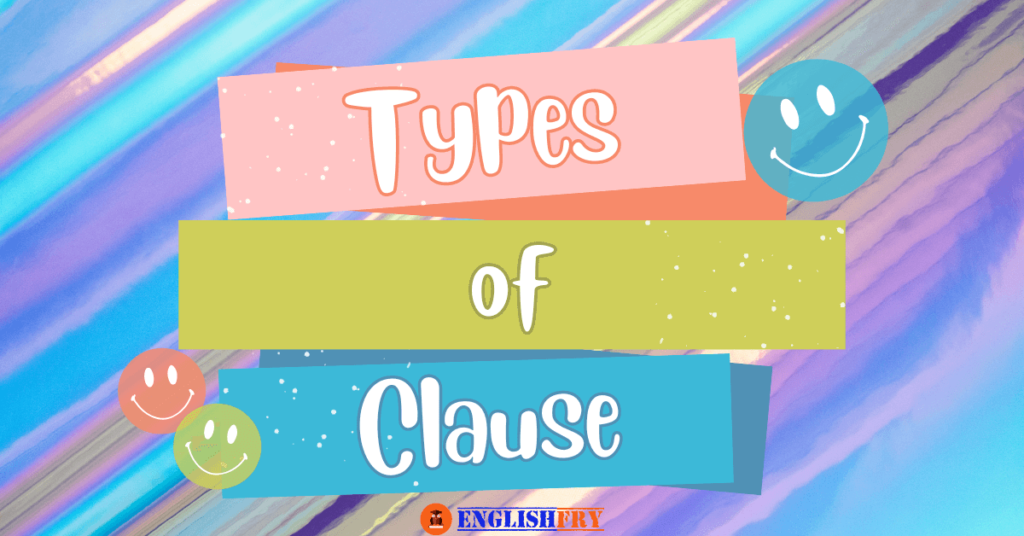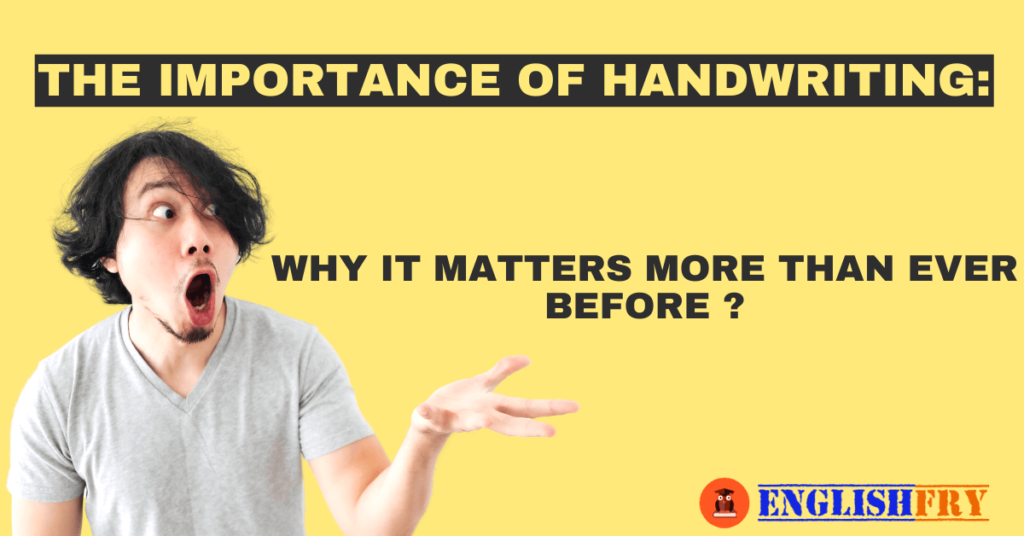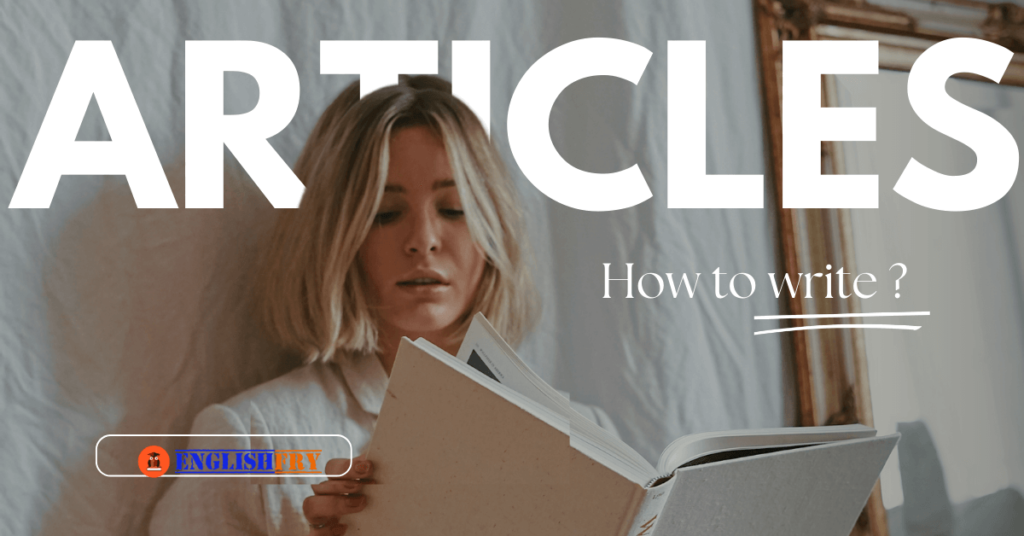Table of Contents
ToggleClauses
A clause is a combination of words that makes up a sentence. It consists of a subject and a predicate. It can also be said that a clause should have a subject and a verb. Now, take a look at the definitions of clauses given by different dictionaries to understand what a clause is.
According to the Oxford Learner’s Dictionary, a clause is defined as “a group of words that includes a subject and a verb and forms a sentence or part of a sentence.” The Cambridge Dictionary defines a clause as “a group of words, consisting of a subject and a finite form of a verb.” “A clause is a group of words containing a verb”,according to the Collins Dictionary. According to the Merriam-Webster Dictionary, a clause is defined as “a group of words containing a subject and predicate and functioning as a member of a complex or compound sentence.”
Types of Clauses
According to how a clause behaves in a sentence, they can be classified into two types. They are:
- Main Clause or Independent Clause – A main clause is a group of words with a subject and a verb. It is one that can stand alone and makes complete sense. That is why it is called an independent clause.
- Subordinate Clause or Dependent Clause – A subordinate clause is a group of words that consists of a subject, a verb and a subordinating conjunction or a relative pronoun. Unlike main clauses, subordinate clauses cannot stand alone or convey complete meaning when taken separately from the sentence it is a part of. Dependent clauses can be divided into types based on their function. The types of dependent clauses are noun clauses, adjective clauses, adverb clauses, conditional clauses, relative clauses, comparative clauses, verbless clauses and complementary clauses.
Examples of How to Use a Clause in a Sentence
Clauses can be placed in the different parts of a sentence. Take a look at the following examples to understand how clauses are formed and can be used.
Examples of Independent Clauses
I know how to drive a car, but I enjoy riding bikes.
Today is Wednesday.
I was not keeping well, so I took a day off work.
When I met you, I did not think we would get this close.
It was my sister’s birthday yesterday; however, she did not want to celebrate.
Examples of Dependent Clauses
- After we reached home, we watched a movie.
- Everybody knows the boy who won the Best Outgoing Student Award.
- My mom asked me to call her as soon as I boarded the bus.
- While we were waiting at the bus stop, we saw a monkey snatching a snack from a little boy.
- Though Malcom did not find the movie interesting, he stayed until the end of the movie.
Check Your Understanding of Clauses
Identify the clauses in the following sentences and state whether they are independent or dependent clauses.
- Naomi’s mother was out of town, so she took care of everyone at home.
- I could not study as the lights went out.
- Since she was absent for over a month, she found it hard to catch up with all that was going on at the office.
- If you are not able to do it yourself, please feel free to take help from anyone here.
- Have some pancakes in case you are hungry.
- She is taller than my brother.
- I am going to the reception even if you are not coming.
- Rahman likes songs that are melodious.
- Although I did not get much sleep last night, I don’t feel tired at all.
Now, check if you have identified the clauses correctly from the answers given below.
- Naomi’s mother was out of town, so she took care of everyone at home.
Independent clause – Naomi’s mother was out of town.
Independent clause – She took care of everyone at home.
- I could not study as the lights went out.
Independent clause – I could not study
Dependent clause – As the lights went out.
- Since she was absent for over a month, she found it hard to catch up with all that was going on at the office.
Independent clause – Since she was absent for over a month.
Dependent clause – She found it hard to catch up with all that was going on at the office.
- If you are not able to do it yourself, please feel free to take help from anyone here.
Independent clause – Please feel free to take help from anyone here.
Dependent clause – If you are not able to do it yourself.
- Have some pancakes in case you are hungry.
Independent clause – Have some pancakes.
Dependent clause – In case you are hungry.
- She is taller than my brother.
Independent clause – She is taller.
Dependent clause – Than my brother
- I am going to the reception even if you are not coming
Independent clause – I am going to the reception.
Dependent clause – Even if you are not coming. Educators if not
- Rahman likes songs that are melodious.
Independent clause- Rahman likes songs.
Dependent clause – That are melodious.
- Although I did not get much sleep last night, I don’t feel tired at all.
Independent clause- I don’t feel tired at all.
Dependent clause – Although I did not get much sleep last night.
Noun Clauses
A noun clause is a dependent clause that works just like a noun in a sentence. The Concise Oxford Dictionary of Linguistics explains a noun clause as “a clause whose syntactic role is seen as like that of a noun or noun phrase”, and the Collins Dictionary defines it as “a clause that fulfils the same function as a noun”.
Functions of a Noun Clause
Just like a noun has various functions, a noun clause has multiple functions too. A noun clause can perform the following functions.
Works as the subject by performing or constituting the action in a sentence.
Takes the place of the object in a sentence by receiving the action.
Acts as the subject complement by identifying or describing the subject.
Functions as the object of a preposition.
How to Identify a Noun Clause?
You can identify a noun clause in two steps:
First, check if there is a noun and a verb.
Then, analyze if it plays any of the functions of a noun (subject, direct object, indirect object, subject complement and object of a preposition).
Let us look at a famous dialogue from the story Aladdin and the Magic Lamp – “Your wish is my command.” Now, look at this sentence, ‘Whatever you wish is my command’. Can you find the difference between the two? Both sentences mean the same thing but have slightly different structures. ‘Your wish’ contains a pronoun (your) and a noun (wish), thereby constituting a noun phrase. On the other hand, ‘whatever you wish’ can be considered a noun clause as it contains a subject (you) and a verb (wish).
Examples of Noun Clause
Claus powering Educators
To have a clearer understanding of how noun clauses are used in sentences and how they perform different functions, go through the following examples.
Noun Clauses as Subjects
- What amuses my son is always surprising.
How we would finish the assignment on time is still a question.
Noun Clauses as Objects
I have been wondering if I should take an auto.
- Does anyone know where I could find a clinic?
Noun Clauses as Subject Complements
- This was exactly what I was looking for.
- A tub of tender coconut ice cream is what I need now.
Nouns Clauses as Objects of Prepositions
- You will have to be ready to face the consequences of whatever decision you make.
- Priya would be happy with anything we give her.
Examples:
Identify the noun, noun phrase or noun clause present in the following sentences.
- Whoever finds the clues and reaches the destination first will win a trip to the United States.
- The teacher congratulated the three students.
- I would hate for you to miss the concert.
- Whoever comes up with an idea will be acknowledged.
- Do you like pizza?
- Whoever finds the clues and reaches the destination first will win a trip to the United States.
Whoever finds the clues and reaches the destination first – Noun clause
ated States – Noun phrase
A trip to the United
ited States -Noun phrase EARNING
- The teacher congratulated the three students.
The teacher – Noun phrase
Noun phrase powering Educators
The three students – Noun phrase
- I would hate for you to miss the concert.
For you to miss the concert – Noun clause
- Whoever comes up with an idea will be acknowledged.
Whoever comes up with an idea – Noun clause
- Do you like pizza?
Pizza – Noun
Adverb Clauses
An adverb clause, as the name suggests, is a clause that does all the functions of a normal adverb. One can identify an adverb clause by asking when, where, how, why and how often. To know how adverb clauses are actually defined, check out the dictionary definitions given below.
According to the Collins Dictionary, an adverb clause is defined as “a subordinate clause that functions as an adverb within a main clause”. The Oxford Dictionary of English Grammar defines an adverb clause as “any *clause (*finite, *non-finite, or *verbless) functioning as an adverbial.”
Use of adverb Clauses
Adverb clauses, as discussed earlier, can be used to provide information about when, where, under what conditions, how and why an action is taking place. They also give the reader a description of an adjective and an adverb. Always remember that an adverb clause begins with a subordinating conjunction like ‘after’, ‘whether’, ‘if’, ‘because’, ‘although’, ‘even though’, etc.
Adverb clauses can be found in the beginning, in the middle or at the end of a sentence. Let us look at some examples and see how it works when used in the different parts of the sentence.
Examples of Adverb Clauses Used in the Beginning of a Sentence
When adverb clauses are used in the beginning of a sentence, it is usually followed by a comma. These clauses are often subordinate or dependent clauses and cannot stand on their own.
Examples:
- If you work hard, you will be able to score good grades.
- In case you like it, let us know.
- Although they drove really fast, they could not reach there in time.
- Before you make your decision, make sure you think this through.
- As soon as you meet her, call me.
Examples of Adverb Clauses Used in the Middle of a Sentence
Adverb clauses that appear in the middle of a sentence are enclosed within commas, and even if removed from the sentence, lets the sentence convey meaning.
Examples:
- My cousins, though they told us that they would not come for the movie, they somehow made it.
- He remembered, after he left the office, that he had not sent the EOD report.
- Remya, since she was not keeping well, decided not to go to work today and tomorrow.
- My friend, because he does not like working in the IT field, started his own company. Digital money, even though it has been made legal all around the world, is not accepted or considered safe by common people.
Examples of Adverb Clauses Used in the End of a Sentence
Whenever adverb clauses are used at the end of a sentence, it does not demand or require any sort of punctuation.
Examples:
- Aaron was made to practice the song for the competition until he sang it perfectly.
- Angel kept rambling on and on as if she wanted to prove that she is broke.
- The dog got so comfortable with my brother after he cuddled her for a while.
- We felt time was very slow because we were sitting idly.
- You will be able to go to the theatres to watch movies as long as there is no Lockdown
Relative Clauses
A relative pronoun is a word that is used to connect an independent clause to a relative clause. Relative pronouns are meant to provide more information about the subject (noun or pronoun) it relates to. These relative pronouns function exactly like adjectives, and so the clauses they form can also be called adjective clauses.
According to the Collins Dictionary, ‘a relative pronoun is a word such as ‘who’, ‘that’, or ‘which’ that is used to introduce a relative clause.’ The Macmillan Dictionary gives a similar definition. According to it, a relative pronoun is ‘a pronoun such as ‘who’, ‘that’, or ‘which’ that introduces a relative clause in a sentence.’
Examples of Relative Pronouns
Relative pronouns are used to form complex sentences. Examples of relative pronouns include who, whom, whose, which and that.
- Who – Refers to a person (the noun/pronoun/subject which does the action)
- Whom – Refers to the object (the noun or pronoun that receives the action)
- Whose – Used to show possession of something or someone
- That Used in a defining clause that refers to a person, animal or thing
- Which – Used in a non-defining clause that refers to a person, animal or thing .
Here are some examples of how relative pronouns can be used in sentences.
- Sheela, who is a teacher, also works as a social worker.
- The car that was stolen last month was found in a river.
- Susan is the girl whom I was talking about.
- The boy, whose sister is a renowned orator, is an orator himself.
- The girl, who saved the little boy, was appreciated by everyone.
There is another category of relative pronouns called compound relative pronouns, formed by the addition of ‘-ever’ or ‘-soever’. Whatever, whatsoever, whoever, whosoever and whichever are some of the compound relative pronouns. Look at the following examples to understand how they are used in sentences.
- Whoever is ready can speak first.
- You can take whichever sweet you like.
- Whatever he takes up, he finishes it in time.
- Whatsoever you do to others, it will be done to you.
- Whosoever runs the fastest will win the race
Conditional Clause
A conditional clause uses words like if or unless to show something is possible or probable but not necessarily guaranteed. They cannot stand alone without the rest of the sentence, making them dependent.
Examples:
- If it starts to rain, we will have to go inside.
- Unless you start putting in more effort, you will likely fail math.
Infinitive Clause
An infinitive clause is a dependent clause that begins with an infinitive verb followed by the base or noun form of the verb. The verb’s infinitive form is usually preceded by the word “To”. Here are some examples:
- To swim in the ocean we will have to get lessons
- To ride a bike he must wear a helmet
- To brew coffee, you need beans, hot water and an AeroPress.
Appositive Clause
An appositive is a noun or noun phrase that renames or provides more information about a noun. The appositive can be a short or long combination of words. Here are some examples:
- My sister, a talented musician, just wrote a book review.
(Here, the appositive phrase is “a talented author”.)
- Dublin, one of Europe’s most visited cities, is in Ireland.
(The appositive phrase is “one of the most visited cities”. )
Founder of Englishfry.com, a captivating and knowledge-driven blog & Founder of Android app/website Studyfunnel.com, an online Mock Test Series Portal. With a wealth of experience spanning over 16+ years, he has excelled as an Ex-Asst.Professor, Teacher, Amazon published author, Website Developer, Graphic Designer,Blogger,Poet, and Creative academic content writer publisher of 4 academic books available Online on Amazon & Flipkart. His tryst in Literature helped him realize his love for writing and telling stories. A tech-savvy language nerd by day and, a passionate writer by night, he now translates his experiences into tales of wisdom served with a side of humor.His widely recognized profound insights ,captivating writing style of weaving words make him contribute to prestigious publications and a sought-after authority in the field that transport readers to extraordinary worlds.







